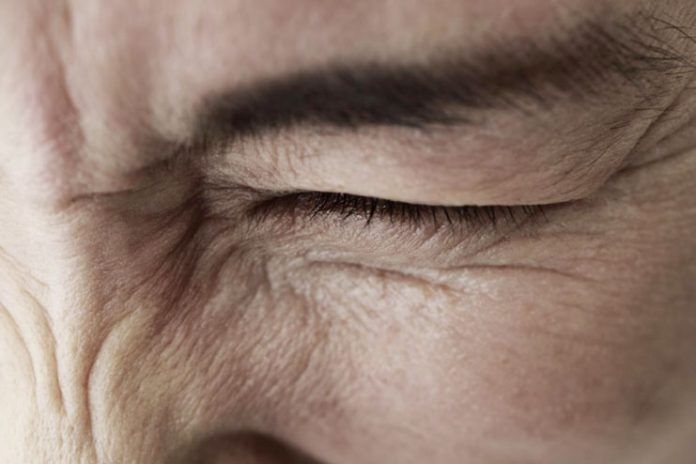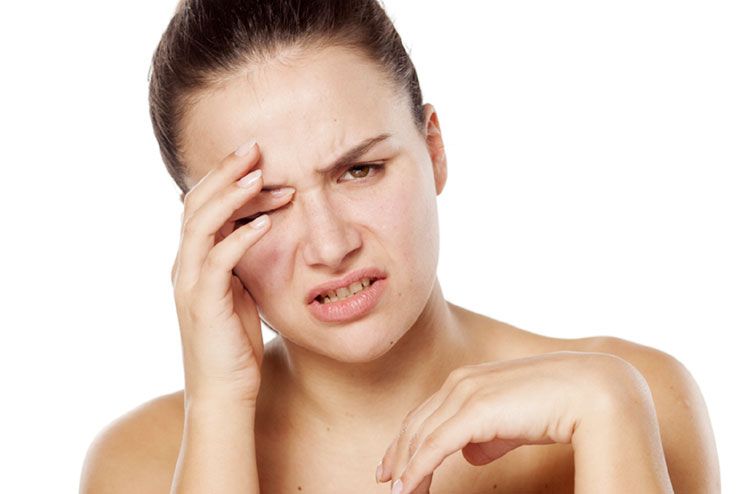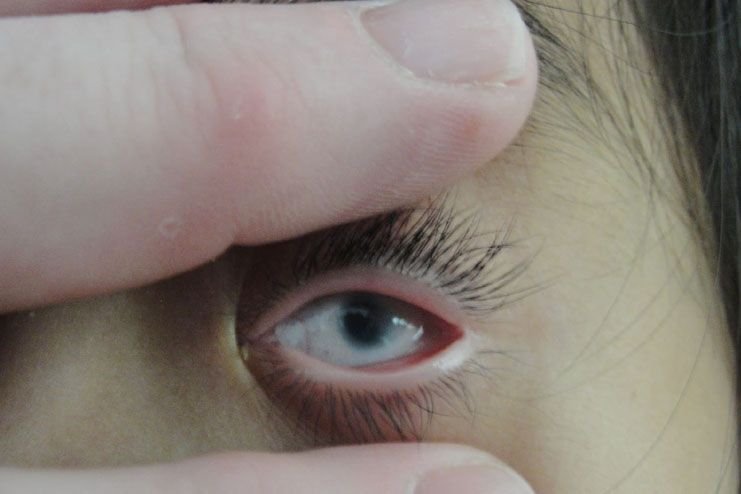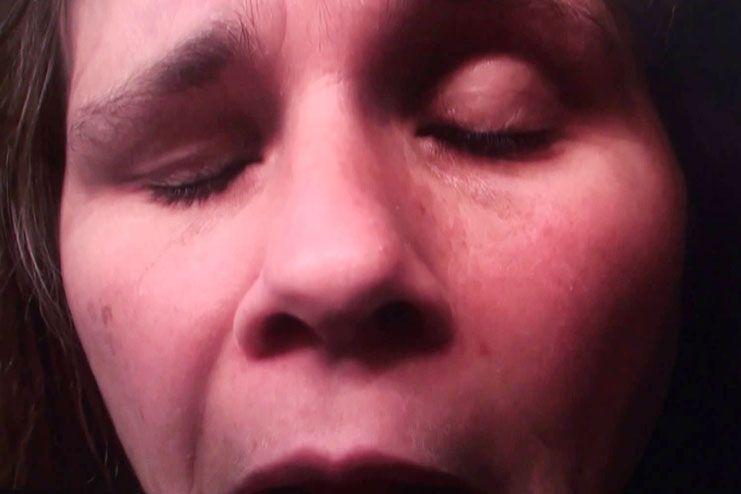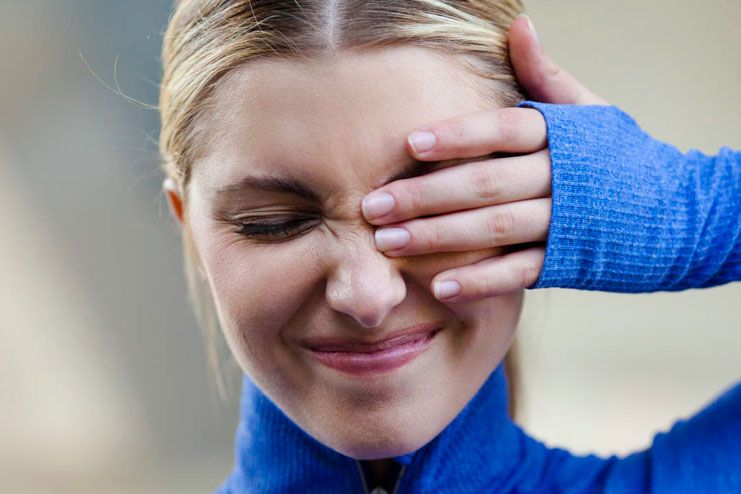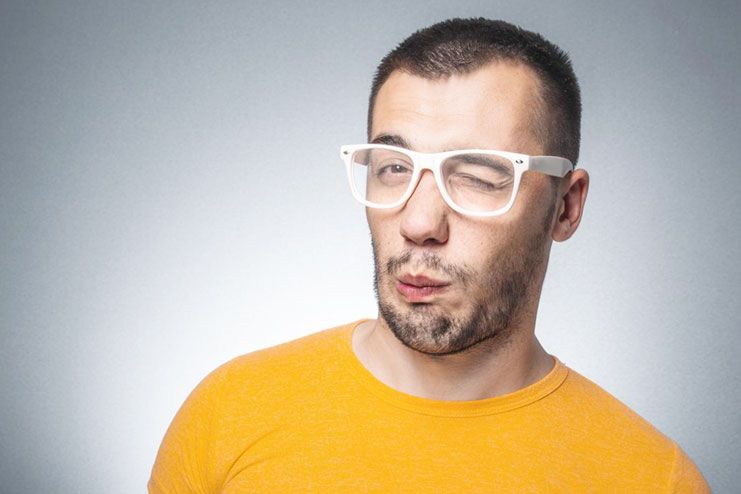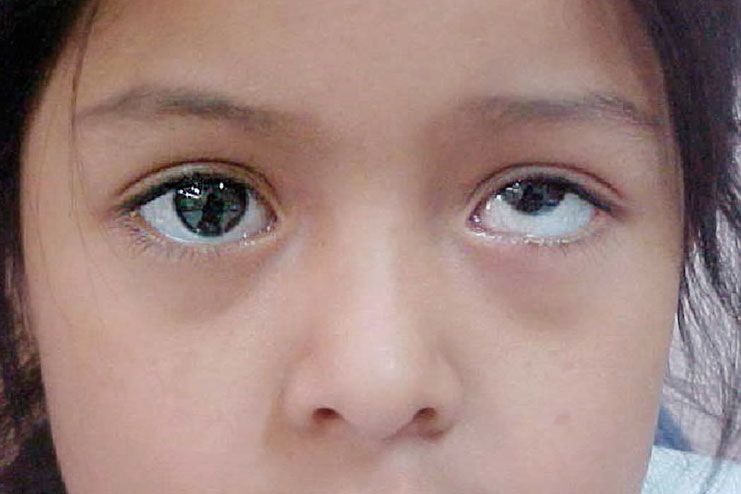Eyelid twitching is a painless and harmless involuntary spasm of the eyelid muscles, also known as blepharospasm. While it commonly occurs in the upper eyelid, twitching can affect both the upper and lower eyelids. Sometimes, individuals may experience twitching so intensely that they must close their eyes completely.
This article provides comprehensive information on eyelid twitching to help you better understand the condition.
What Does It Mean When Your Eye Twitches?
There are various scientific explanations behind eye twitching, especially left eye twitching. Several factors contribute to this condition. However, eye twitching is also associated with superstitious beliefs in many countries.
This article will explore scientific and cultural perspectives on eye twitching across different regions.
Also, Read: How to Prevent Digital Eye Strain: Tips for Office Workers
Why Does My Eye Twitch?
If you are wondering why your eyes twitch, it is essential to understand that, as mentioned earlier, it is associated with various causes. Although this twitching is painless and harmless, it can be uncomfortable. Sometimes, it is accompanied by other facial twitches and uncontrollable movements.
From a superstitious perspective, a left eye twitch is believed to be beneficial and associated with important gains. Let’s explore some of the key causes of eye twitching.
What Causes Your Eye to Twitch?
Some significant causes of eye twitching are as follows:
- Stress: Twitching of the eye can be a significant sign of stress. This issue becomes even more significant when related to vision problems such as eye strain.
- Tiredness: Tiredness due to lack of sleep and stress can trigger eyelid twitching
- Eye Strain: Eye strain can occur when you need glasses. Since the eyes are delicate organs, even minor problems can put pressure on them, leading to eye twitching.
- Caffeine: Uncontrolled caffeine consumption is also linked to eye twitching. Therefore, limiting coffee, chocolate, tea, and soft drinks is important to help reduce eye twitching.
- Alcohol: Alcohol is another major cause of eye twitching.
- Nutritional Imbalance: According to experts, a deficiency of specific nutrients, such as magnesium, may lead to eyelid spasms (R). However, there is limited evidence to support this claim.
- Allergies: Certain eye allergies can cause itching and watery eyes. Rubbing your eyes also triggers the production of histamine, which, according to various studies, is one of the main causes of eye twitching (R).
- Dry Eyes: Dry eyes are another condition caused by the overuse of computers. This condition is also one of the main causes of eye twitching.
What is Left Eyelid Twitching
Left eye twitching is linked to many superstitious beliefs. According to various cultures, right eye twitching is associated with good luck, meaning something positive, such as good news or financial gain, may occur in your life. On the other hand, left eye twitching is often considered a bad omen.
However, in some cultures, left eye twitching is also associated with good luck or incredible events in your life.
1. South African Culture
In African culture, it is believed that meeting a person with a twitching left eye can cause a fungal infection on the tongue or boils on the body. Although no scientific evidence supports this theory, some people suffering from this condition may live in fear due to these beliefs.
Another theory suggests that left eye twitching is linked to the myth that the person experiencing it is envious of others. It is believed that individuals with twitching eyes may have malicious intent or a negative perception of others’ achievements.
2. Chinese Culture
Chinese culture claims that twitching the left eye is linked to good luck, while twitching the right eye is considered a bad omen.
Additionally, Chinese people believe that if your left lower eyelid twitches, it signifies that you may cry soon or that something unfortunate may happen in your life. If your eyelid muscles twitch due to spasms, it is believed that people are gossiping about you.
In Chinese culture, the interpretation of left or right eye twitching also depends on the time of day.
| Time of the day | Left eye twitching | Right eye twitching |
| 11 pm to 1 am | You will meet a noble visitor | You will be invited to the party by your friends |
| 1 am to 3 am | Something bad will happen | You are thinking of someone |
| 3 am to 5 am | Visitor from another location will come to your home | Something good will happen |
| 5 am to 7 am | Expect a special visitor | Everything good will happen |
| 7 am to 9 am | You will meet a best friend from another location | You will be in small danger |
| 9 am to 11 am | You will get invitation for party | You will be in chaos |
| 11 am to 1 pm | You will receive invitation for dine | Great disaster to going to occur |
| 1 pm to 3 pm | You will receive large money | Something joyous will happen |
| 3 pm to 5 pm | You are going to lose your money | You will think about someone close to you |
| 5 pm to 7 pm | Someone will visit your home | You are going to host a visitor from another location |
| 7 pm to 9 pm | Someone will be coming to your home | You will attend a meeting or will be in crowd |
| 9 pm to 11 pm | A friend will visit you | You could be in trouble which can even take you to court |
3. Indian Culture
In Indian culture, the interpretation of eye twitching depends on the gender of the person experiencing it. Unlike in Chinese culture, time does not hold significance in Indian beliefs regarding eye twitching.
In Indian culture, twitching of the right eye is associated with good luck and is considered a sign that positive events will occur in one’s life.
For women, twitching of the left eye is seen as a good omen, whereas it is considered a bad sign for men. According to Indian beliefs, men who experience left eye twitching may face unfortunate events.
Additionally, if the left eye pupil twitches, it is regarded as a symbol of good luck. A spasm in the middle of the eye is believed to be a sign of financial gain, while involuntary movement of the left eyelid is seen as a sign of misfortune.
Twitching of the left eyebrow indicates that a baby will soon be born into the family. On the other hand, twitching of the lower part of the eye is believed to signify upcoming significant financial expenses.
Left Eye Twitching Treatment
Although twitching under the left eye is considered a good omen in some cultures, it is important to seek medical help if the condition persists, as it may be a sign of a neurological disorder, such as Parkinson’s disease.
There is no need to panic if you experience left eye twitching; it is usually painless and not highly harmful. However, if it is associated with Parkinson’s disease, prolonged spasms may also appear on the right side of the face.
The treatment of left eye twitching may also involve addressing underlying allergies. Consulting a doctor is essential to determine the cause and receive appropriate treatment. After a complete evaluation, a doctor may prescribe medications to relieve facial spasms.
Some alternative treatments for left eye twitching include:
- Hypnosis
- Massage therapy
- Nutrition therapy
- Tai Chi
- Yoga and meditation
- Acupuncture
- Biofeedback
Additionally, you can try some effective home remedies to manage left eye twitching.
Also, Read: Combat Digital Eye Strain: 7 Blue Light Blocking Glasses for Screen Time Relief
Natural Home Remedies for Twitching Under Eyes
You can try various natural home remedies if your left eyelid keeps twitching constantly. Below are some important natural remedies to help you eliminate left eye twitching.
1. Sleep Well
Get at least seven to eight hours of sleep. Lack of sleep can lead to various health problems, including eye strain and fatigue. When your eyes do not get enough rest, they may start twitching. Therefore, it is important to maintain a proper sleep schedule and go to bed at the right time.
2. Maintain Lubrication in Your Eyes
Dry eyes are also linked to eye twitching. You can manage dry eyes at home by cleaning your face with lukewarm water mixed with honey. After cleansing, gently dry your face with a soft washcloth. Honey provides a soothing effect, helps moisturize the eyes, and reduces irritation by maintaining proper lubrication.
3. Milk Drops
Milk drop therapy protects your eyes from allergies, pollution, smoke, dust particles, and various chemicals such as detergents. Milk provides a soothing effect, helping to relieve irritation and eye twitching. It also helps moisturize the eyes, keeping them well-hydrated.
4. Cold Compress Your Eyes
Your eyes may become highly stressed due to daily activities such as watching TV or working on a computer for long periods, leading to spasms. To alleviate this, apply a cold compress to your eyes using cold water and a washcloth. This will help relax the eye muscles.
5. Consume a Balanced Diet
A balanced diet helps address various health issues, including reducing facial spasms. Ensure that your diet includes foods rich in vitamin B12 and magnesium. Green vegetables are a good source of magnesium, and you can also opt for B12 supplements to increase your vitamin B12 intake.
When to See a Doctor?
If eye twitching is severe, it is vital to seek emergency medical treatment. You should see a doctor immediately if you experience:
- Red, swollen eyes with unusual discharge
- Drooping upper eyelids
- Involuntary closing of the eyes while twitching
- Persistent twitching for long periods
- Twitching that affects other parts of the body
Prevention of Left Eye Twitching
Follow the tips below to help reduce left eye twitching:
- Keep a journal to track when you experience eye twitching.
- Reduce the intake of caffeine, alcohol, and tobacco.
- Get enough sleep and manage stress levels.
- Go to bed 30 minutes to an hour earlier to relieve pressure from your eyelids, which can help reduce spasms.
It is important to address left eye twitching, as it may indicate an underlying health condition. Making certain lifestyle changes can help manage the condition more effectively. In some cases, persistent eye twitching may be a sign of a neurological disorder that requires medical attention and should not be ignored.
Also, Read: 7 Lavender Eye Pillows: Natural Headache and Eye Relief
Conclusion
Twitching of the left eye is a very common condition that can arise due to various reasons, including stress, fatigue, eye strain, nutritional deficits, allergies, and dry eyes.
While these twitching episodes are harmless, persistent or severe twitches may signal the presence of an underlying medical condition that would merit further investigation by a health professional.
Culturally, people perceive left eye twitching in different ways. Some find it auspicious, while others think it is an omen of bad luck. Scientifically, it is explained as muscle spasms caused by neurological and lifestyle factors.
Healthy habits like sufficient sleep, stress management, proper eye lubrication, and a balanced diet can help control and prevent eye twitching. If the eyelid keeps twitching or becomes more frequent, see a doctor to rule out any major medical problems.
-
Jun 2017Written by Prajakt
-
Apr 2025Edited by Lakshmi Gayatri
In this Article















